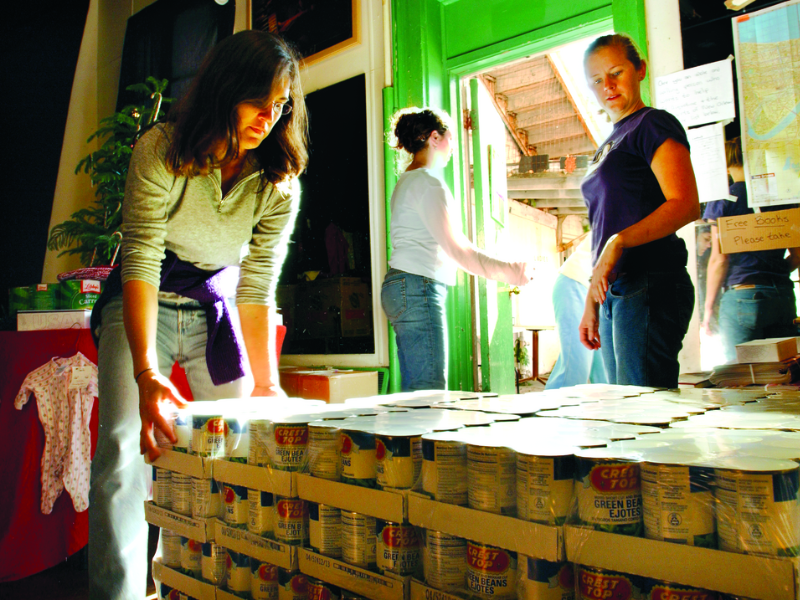New Tulane study finds breakdowns in food-related response to natural disasters
Disaster response is an important part of public health, as proper planning and implementation of those plans can have a significant impact on the collective health and survivability of an affected population.
A major piece of disaster response is food security, which is consistent access to sustenance and nutrition.
A Tulane-led study released earlier this year, Food Security Dimensions in US Disaster Plans: A Comparative Analysis of States and Territories, aimed to find out how effective existing disaster response plans have been at addressing food-related issues. The study analyzed disaster response plans from five U.S. jurisdictions – Florida, Texas, Louisiana, Puerto Rico, and the U.S. Virgin Islands.
The study’s lead author, Maria M. Munoz, a PhD candidate at the Celia Scott Weatherhead School of Public Health and Tropical Medicine, lived in Puerto Rico as a child, moved to the Midwest and eventually ended up studying at LSU and now Tulane. There was one common thread in every location.
“Food is consistently something that everybody understands,” she says. “And that brings people together. I've never met someone who doesn't believe that we should all have food. It's not just a need, it's a right. We all deserve to eat.”
The study assessed plans across four main dimensions – availability, accessibility, agency, and adaptability – and found gaps in response, particularly as it related to agency.
Agency refers to survivors’ ability to make choices and use food -- having cash/ Disaster SNAP access, culturally appropriate options, and the capacity to store or cook safely.
Food aid often arrives quickly and decisively in the immediate aftermath of a storm, but the response tends to lose momentum as time passes. Despite broad agreement that survivors should be able to regain self-sufficiency, the support needed to make that possible is frequently missing.
A lack of attention to agency has significant long-term implications, fostering dependence on external aid rather than promoting resilience and autonomy.
“We need to implement planning in a way that incorporates the multiple phases that occur in that recovery phase,” Munoz said. “Within response and recovery, you do have short-term needs, mid-term needs, and then long-term needs. And I think different stakeholders can provide different services and resources for each of those occurrences.”
“The most long-term, resilient solutions for a lot of folks who are dealing with structural repairs and needs down to food and food security -- whether it's because they lost a job, whether the store down the road from them closed, all the other many factors that can be in that individual's life -- those stem more from federal and state-level support. And that can be planned for in advance.”
One community the study examined was the island of Puerto Rico in the wake of Hurricane Maria in 2017. Much of the island went without power for six months after the storm, and roads were often impassable. The lack of power meant that not only residents were unable to safely store perishable foods, they also couldn’t cook without electricity to power electric stoves.
“So that's really where the lens of equity, policy, and ways to think about more resilient food systems comes into play, because we can all pack a box of supplies to send to folks that need it. But then it's thinking, when it arrives, can it even be used?”
“That's the piece that we need to really think more critically about.”
Food did reach the island, Munoz points out, but there are documented examples of it being found months later still at the port. She highlights the need to critically think about the plan and go back t it yearly since things change constantly and humans are in constant flux.
Twenty years after Hurricane Katrina, New Orleans, too, can still see the scars of bad planning. But Munoz sees hope moving forward.
“The practicality is that it takes work. It just does, because what Asheville needed, what Texas needed with the most recent floods, all of that is so place-specific, but I don't think that it's not something that there can't be a template for.”
The study’s conclusion highlights the need for targeted policy reforms and enhanced federal support to ensure equitable food security during a disaster.

